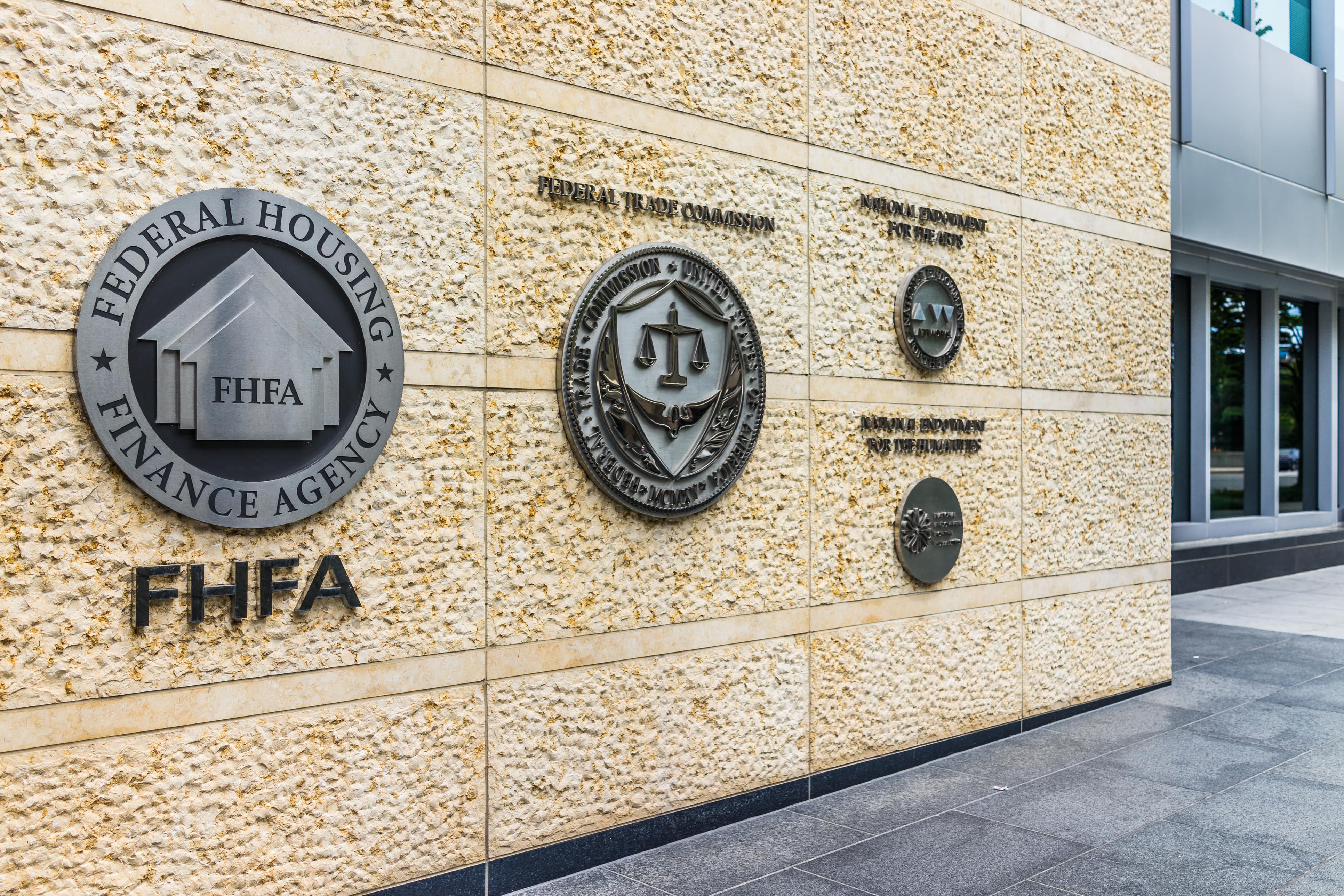Earlier this month, President Trump released an Executive order (EO) surrounded by messaging that has confused some, and provided a false sense of security for others.
What Impact Did the Recent Executive Order Have on Evictions?
The “Executive Order on Fighting the Spread of COVID-19 by Providing Assistance to Renters and Homeowners” suggests that certain department leaders dedicate time to investigate potential options for reducing the risk of evictions and assess the resources at their disposal to address those options. To be clear, the EO on its own does NOT prevent evictions and foreclosures, nor does it explicitly compel any party to take a specific, direct action to prevent evictions.
In the first section, the POTUS gives a brief overview of his administration’s efforts to reduce the impact of the virus on the economy, emphasizing those actions taken to maintain stable housing for individuals through the pandemic. Citing the CDC’s concerns regarding the potential for unemployment to continue to displace families and increase homelessness, the EO calls on the administration to take the steps “reasonably necessary” to prevent eviction and foreclosures due to the coronavirus.
The second section briefly outlines that the government’s stance is to “minimize” residential evictions and foreclosures through the national emergency. The third section outlines the agencies the president calls on to consider actions and potential resources that could be utilized to combat evictions.
Specifically, the EO suggests that the Secretary of the HHS and the Director of the CDC should consider measures to stop evictions due to late or non-payment of rent to reduce the spread of the coronavirus across states. The EO recommends that the Secretary of the Treasury and the Secretary of HUD “identify” potential funds that could be used for economic relief for renters and homeowners suffering due to COVID-19. The order also calls the Secretary of HUD to consider the ability to leverage resources to assist renters and homeowners in reducing the likelihood of evictions, such as providing assistance directly to housing authorities and landlords. Finally, it states that the Director of the FHFA and the Secretary of the Treasury should review “existing authorities and resources” that could be allocated to prevent eviction and foreclosures.
What Action has been Taken to Prevent Evictions Nationally?
Throughout the pandemic and independent of the EO, several states have created buffers at the local level with varying degrees of protection. New York’s Chief Administrative Judge, Lawrence Marks, and its governor, Andrew Cuomo, have made various mandates and moratoriums as the pandemic progressed over the summer. The terms of California’s current eviction moratorium are set to expire soon, however; a deal is being debated offering a reduced rent solution. The extension of the moratorium in Florida prevents ”final action” in eviction proceedings against tenants “adversely affected” by the pandemic. Washington DC’s Office of the Attorney General has a FAQ page for District residents. While each of these offers some safeguards against evictions, they do not provide the same level of security for everyone in the country.
Since the EO was released, three weeks had passed with little news at the national level, and relatively no response from the agencies called out to address the actions in the EO. However, on August 27, 2020 the HUD, the FHA and the FHFA took action and extended several eviction and foreclosure moratoriums. While these moratoriums provide protections at a national level, they are not all-encompassing in terms of what they’ll do and who they’ll protect.
How Long Will Moratoriums Last and What Protections do they Offer?
On August 27, a press release from HUD verified that the FHA has extended the moratorium against foreclosure and eviction through December 31, 2020. The third extension of the moratorium covers FHA-insured Single Family Home mortgages, calling on mortgage servicers to “halt new foreclosure actions” and “cease all evictions of persons from FHA-insured single-family properties,” excluding vacant/abandoned properties.
In the press release HUD notes that if able, homeowners should continue to make payments or seek mortgage payment forbearance as outlined in the CARES Act.
Similarly, the FHFA released the extension to its foreclosure and real estate owned (REO) eviction moratoriums. The FHFA moratoriums apply to single-family mortgages under the Enterprises (Freddie Mac and Fannie Mae) and will protect “more than 28 million homeowners,” according to Mark Calabria, Director of the FHFA. The extension will last “until at least December 31, 2020”. The Agency predicts that this extension will bring its expenses due to the moratoriums to a total between $1.1 and $1.7 billion.
Who is Protected by FHA and FHFA Moratoriums?
The moratoriums do not prevent all evictions. The FHA and FHFA moratoriums only protect specific single-family mortgages. It is important to know that these moratoriums apply to homes with single-family mortgages, backed by the Enterprises or the FHA. As of Q1 of 2020, FHA-insured single-family mortgages account for about 11.2% of the market share.
To determine if a loan is insured by the FHA, check the HUD-1 form (the settlement statement received when closing on a home) by referencing the copy provided at signing or by requesting a new one. Alternatively, Freddie Mac and Fannie Mae have tools available online that can help.
It’s important to note, these moratoriums do not prevent the eviction of renters. In the CARES Act, Sec. 4024, evictions were prevented in most multifamily dwellings with federally-backed mortgages or that participated in/received funding from specific federal programs. The program was set to last 120 days from the enactment of the CARES Act on March 27, which was July 25. After July 25, upon giving the notice to vacate, lessors were required to give tenants 30 days’ notice. While federal law protects certain tenants’ rights if the lessor is experiencing foreclosure, protections for renters are now only at the state or local level, if they even exist at all.
To read more about the previous moratoriums and their impact as well as an overview of best practices in evaluating and formulating moratoriums, visit this article by ABC Legal’s VP of Product, Sascha Mehlhase.
What are the Looming Risks for Renters and Homeowners?
COVID-19 has impacted employment and continues to infect more people. Coupled with the recession, millions are in crisis and many find themselves pushed to the brink of financial ruin. As of July, the Bureau of Labor Statistics states that the U.S. unemployment is at 10.2%, with 16.3 million people unemployed. The reopening has been staggered, and while there has been a decline in the rate of new coronavirus cases, the New York Times reports for August 27 1.1k new deaths and 45.6k new infections. As the virus continues to impact families and the economy, many are struggling to make rent and housing payments altogether.
While the moratoriums provide temporary relief from eviction, they do not prevent homeowners and renters from falling into increasing debt, when they are unable to make payments. The debt can accumulate over months, if not the year, and it will be difficult for renters and homeowners to make payments while still struggling under pandemic.
Actions for Homeowners and Renters in Crisis
There is a need for local, state and federal governments to provide additional protections, forgiveness, assistance, or some form of economic relief to renters. Otherwise, renters and homeowners will find themselves at the end of an eviction lawsuit and out of a home as soon as applicable laws and regulations are lifted.
The best practice is to become acutely aware of local laws, whether you are a homeowner, lender, renter or lessor. Each state’s regulations vary in the protection provided and the duration of those safeguards. Some laws have set dates, while others, such as the Emergency Executive Order 20-14 in Minnesota, will last until the state of “peacetime emergency” declared in response to COVID-19 ends. Emily Benfer, a Visiting Professor of Law at Wake Forest University School of Law has developed an intensive spreadsheet outlining local eviction legislation drawn in response to COVID-19.
Accumulated debt will need to be paid, so begin to plan now. HUD has a Resources for Renters website that offers detailed advice and options to speak with a HUD-approved housing counselor. It is also a good idea for renters and homeowners to consider evaluating their financial situation, perhaps using a budget calculator.
If you find yourself on the receiving end of an eviction lawsuit, take steps to understand the eviction process, become aware of the local laws currently in effect, attend the court hearing, and seek legal counsel to help navigate current laws. CalMatters suggests that having an attorney “could dramatically change eviction process outcomes” and suggests that developing additional programs to provide attorneys to those in need, like the Shriver Project, could make a difference.
Learn more about COVID-19 and its impact on different legal processes, the economy and finance on the ABC Legal Blog.
About ABC Legal Services
ABC Legal is the nation’s leading service of process and court filing company and is the official process server to the U.S. Department of Justice. Docketly is a subsidiary of ABC Legal, providing appearance counsel on a digital, custom-built platform that smoothly integrates with our applications and services. ABC Legal’s applications are cloud-based and compatible for use on desktop, browser, and smartphones. Our solutions and digital approach ensure process server partners, law firm customers, and their clients save valuable time and resources when serving legal notices safely and with maximum compliance, control, and transparency. ABC Legal is based in Seattle, WA, with more than 2,000 process servers throughout the U.S., as well as internationally in more than 75 countries. To learn more about ABC Legal, our solutions, and subsidiary company Docketly, visit www.abclegal.com.

Written by
Heather ThomasService made simple—down the road and across the country. Join the 50,000+ professionals who trust ABC Legal for service of process.
Recent Posts
Subscribe to email updates
Popular posts
Learn More

Justice Department to Appeal Judge’s Order on CDC Eviction Moratorium

Biden Extends Rental Eviction Moratorium









